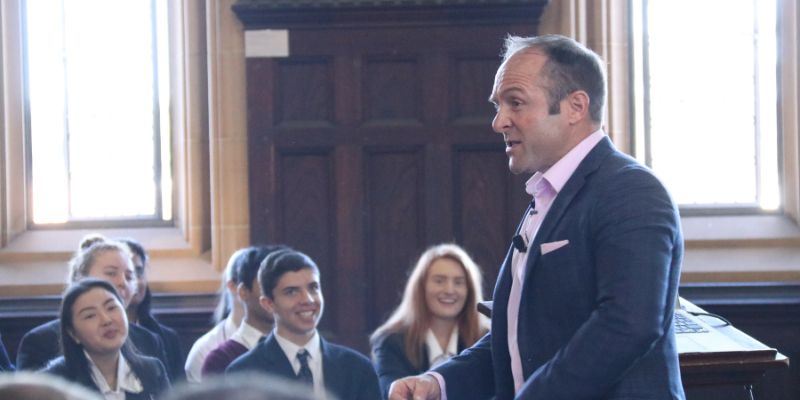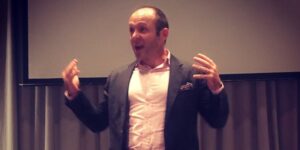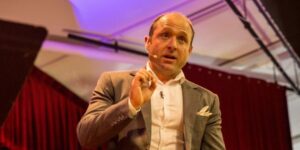In today’s episode, Jonathan Doyle explores the essence of leadership and influence within the Catholic teaching community. Drawing from yesterday’s discussion on self-leadership, Jonathan emphasizes that leadership equals influence, which is shaped by our character. Through captivating examples, he underscores the profound impact of character on leadership effectiveness. Join us as we prepare to delve into character development in tomorrow’s episode. Stay tuned for insights to lead with integrity in your Catholic educational journey!
Welcome Aboard
Hello there, my friend. Jonathan Doyle is with you. Welcome aboard to the Catholic Teacher Daily Podcast. I hope you listened to yesterday’s episode. We talked about self-leadership, we talked about the three-step process of leadership and how it’s relevant to every Catholic teacher, every Catholic leader, and every Catholic in general. So we are all leading ourselves somewhere. There is this self-leadership piece in play where we are leading our own lives.
Leadership as the Creation of Change

Yesterday, I said that leadership is influence. We are in a three-step process, the first step is defining leadership, and I accept with complete humility that there are multiple definitions of leadership and different lenses and filters that we can use. But the one that I found very helpful in teaching. This three-step process applies to Catholic leaders and teachers.
Part one, leadership is influence, what’s influence? Something changed. What do leaders do? They create change, they have a vision of a preferred, articulated future state that is better than the current state. And they try to take people towards it by influencing people’s choices, their level of buy-in, and their decisions. So we get change. Leadership equals influence.
Vision of a Preferred Future State
Day two, this is today. What determines the nature of the influence? So if leadership is influence, then we can obviously tell that there’s all this different kind of leadership influence, right? So in my live seminars with Catholic educators, Catholic principals, and Catholic teachers, I show the slides, and we have a slide of Adolf Hitler, who, I say, was an influence created, and people can absolutely agree that is something Adolf Hitler was capable of deploying extraordinary levels of influence.
He was able to communicate a particular narrative, or, as we say, in the leadership theory of the visionary state. So he articulated a preferred future state that was conceptualized as better than the current state that the German people were in in the late 1930s or the mid-1930s. And so he was able to influence people. That influence had a very particular level of suffering that is credited with normal suffering in the world. So we’d’ve got leadership as influence.
Determinants of Influence

What determines the influence? Here it is, part two. Influence is determined by character. The character of the leader determines the kind of influence. Now you see, this begins to flow together. We’ve all got self-leadership responsibilities. Our leadership is the influence that we create. The kind of influence that we create is based on the character that we possess.
If you have somebody with a refined, virtuous, selfless, or humble character, they create a particular kind of influence. If you find somebody who has an insecure or duplicitous character, I guess it is characterized by lying, deceit, or self-promotion or dishonesty. Then you get a different kind of influence.
"What shapes the quality of Catholic leadership will always be the character of the leader."
Jonathan Doyle Tweet
The good news is tomorrow we’re going to define what shapes the character? So you see this three-part process. Leadership is influence; what’s influence? influence is character. What determines the character? That is tomorrow. Make sure you tune back in for tomorrow.
Understanding the Origins of Character
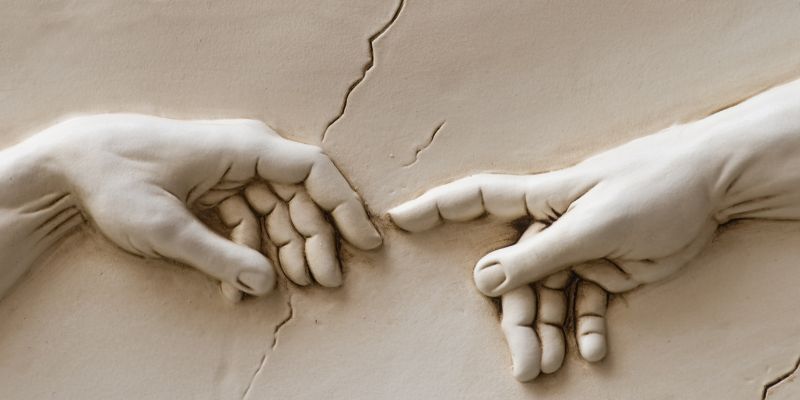
When I was building this seminar years ago, it’s something I’ve worked on for many years now with Catholic teachers and leaders all over the world. It was helpful to go deep into the nature of character.
Actually, the Greeks talked about it. The Greeks saw it as an indelible mark written upon the soul. And then, in mid-old English, just before the early modern period, it reappeared. Like a tattoo on the soul, like a mark on the body. So there was a sense, linguistically, that character was something intrinsic to who you were. It wasn’t something you could throw on and throw off like a garment. It was like a tattoo on your interior self.
So our character obviously defines us very deeply. But the good news is tomorrow, we’re going to talk about where this character comes from, because that’s going to put us back in the driver’s seat of self-leadership. The great thing about the way that we’ve been created is that God gives us this remarkable opportunity to make changes. If our character isn’t creating the kind of influence that we want, then there are other ways to do it.
Insights from History - Case Study: Ulysses S. Grant
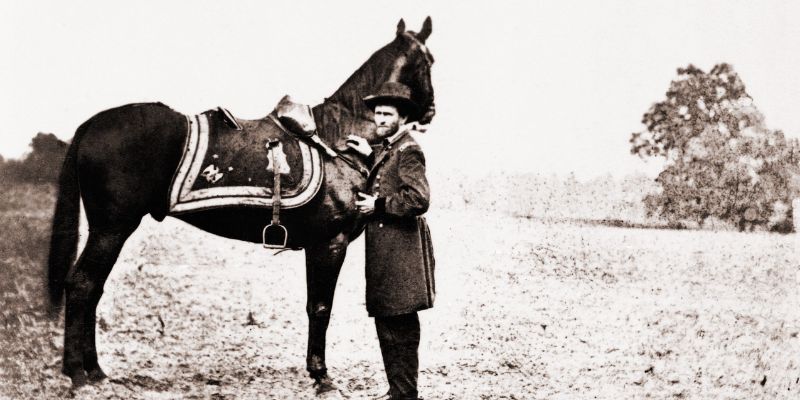
Just on the character piece, I’ve been reading a 1,000-page biography of General Ulysses S. Grant. The Supreme Commander of Union Forces from about 1863 to 1865 to the end of the civil war. He’s a really interesting study in character because he’s somebody who wrestles with big internal battles, addictions, and problems, but somebody who demonstrates extraordinary humility. One of the reasons he was so successful was because his character was quite different to the men and women that he had been leading previously, who had been leading previously.
A lot of the generals before Grant were highly political animals that were always trying to promote themselves and take credit for things they hadn’t done. I was reading late last night, after General Sherman, who was Grant’s successor after he captured Atlanta. There was this moment where Grant traveled all the way to see Sherman and literally rejoiced in his victory, transferred all the accolades to Sherman, and took nothing for himself. Even though he was the supreme architect of that campaign.
Whether you’re a history buff or not, my point is that his character was remarkably different from the leaders that preceded him. It really was noticeable and very effective for him.
Self-Leadership and Influence: Empowering Individuals for Leadership

My friend, let’s do a quick summary here. What am I talking about in terms of the power of leadership in a Catholic school? About the crucial need for great leaders in Catholic schools. Leaders who are first involved in self-leadership. All of us are leading ourselves somewhere all the time in what we do, what we say, what we eat, how we exercise or don’t exercise, or what we do. All these different things that leadership creates influence: the influences created by our character. Influences change. Leaders change things, and change classrooms.
Friends, you can be a leader in the life of an individual Catholic student. I mean that. If you can see a future for them that is different from the one they see for themselves. Then you are creating leadership. You are helping to create influence by articulating that vision to them, helping to see in themselves some of that they can’t currently see. That’s a powerful thing.
Conclusion: Looking Ahead

Tomorrow, we’re going to talk about what shapes the character. And it’s really interesting, I know you’re going to love that. So in the meantime, please take a moment to check out my website, jonathandoyle.co. If you’d like to book me to speak at any Catholic event, anywhere in the world. I’m back in the U.S. again this year. And of course all over Australia, Asia, and parts of Europe.
Go and check out the website. It gives you a full breakdown of all the stuff that I’m doing with Catholic education around the world. And if you’re on Instagram, you can find me at @jdoylespeaks, one word, jdoylespeaks.
God bless you, my friend, tune in tomorrow. I’m going to put the power back in your hands. I’m going to show you how He actually refined our character to create a better influence, to help everybody get towards that bright and beautiful future that’s promised to us in Christ. God bless you. My name is Jonathan Doyle. This has been the Catholic Teacher Daily Podcast. You and I are going to talk again tomorrow.
